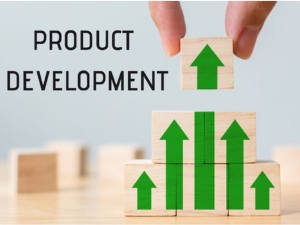Product Development
Course Overview

In today’s hypercompetitive and fast-paced world, all businesses are under constant pressure to deliver new products faster and more effectively on time and to actively managing a product with full utilization of the organization’s resources towards achievement of the target roadmap, which underscores the importance of investing in comprehensive product development courses.
Does your product launch process support your business to do so?
Your ability to rapidly implement changing requirements is a competitive edge that you need to ensure you have in your business.
Goal of Course:
Our product development courses will introduce and explain to participants the Time to Market (TTM) products launch process as a key element to their business to help business sustainability and forge a new competitive edge adding to the organization strengths. Such process was launched, governance and control in two major corporates, resulting in improving project cycle time by 46% and delivery of road map to over 85% within the time line of planning.
Our product development courses offer a deep dive into strategic planning and product development with essential tools for navigating today’s business complexities. From market dynamics to segmentation strategies, participants gain insights to position their offerings effectively for competitive advantage. They also discover the value of global collaboration, transforming it into a strategic asset that drives innovation and market success.
Moreover, our training emphasizes continuous improvement in product lifecycle management. Through early and ongoing product validation cycles, participants learn to preempt issues, minimizing delays and optimizing resource allocation.
Duration:
3 days
Language:
English
Training Objectives
- Strategic planning, including market study, market segmentation and differentiators
- Understand best method of product design and method of delivery through partners
- Value proposition and product differentiation
- Understand how to standardize and optimize the product design, development & launch process to enables you to shorten development cycles.
- Learn the streamlining of all resources towards achievement of the road map in order to effectively reflect the company strategy.
- Learn in depth about the product launch process (TTM) milestones from T-1 (opportunity study ) to T4 (project closure & launch review)
- Learn about the TTM Six Key Success Factors
- Realize that global collaboration can become a standard business practice, not a burden.
- Learn to integrate early and continual product validation cycles to prevent delays and deal with obstacles.
- Understand the product In Life Management (ILM) steps
- All of these elements ensure that you’ll be the first one to meet your customers’ needs, strengthening your brand loyalty, increasing customer satisfaction and improving your market opportunity.
Day 1
Module 1: Strategic planning and market positioning
- Strategic analysis and market study and plan development
- Concept development and ideas screening
- Market segmentation and customers persona
- Competition analysis and product line differentiators composition and planning
- Value creation through partnerships
Module 2: Product launch process – Time to Market (TTM) overview
- Product launch process (TTM) in a Nutshell
- TTM Basics
- TTM six key success factors
- TTM Committee
- TTM roles & responsibilities
Module 3: T-1 opportunity study
- Justify and organize the opportunity study
- Define the project boundary, its objectives and the priority level in relation to strategy
- Customer needs and key product features identification
- Link the product to product portfolio
- Estimate the market potential
- Industry analysis, competitor analysis, competitive advantage
- Establish a schedule up to the Opportunity review and identify those responsible for the deliverables
- Allocate resources and budgets
- Feasibility Study
- Decide process option: TTM ‘Standard’ or ‘Fast Track’
- Business case structure and writing
Module 4: T0 take Go/No Go decision
- Project Management plan (Project Resources and Management)
- Value based product pricing
- Go/No Go decision for the design & market launch
- Validate objectives, business plan, project plan, and business requirements
- Validate the main technical, IT, process and customer journey directions
- Verify compliance with the budget
- Review Business case
- Establish and commit (all contributors) on T3 objective
- Confirm process: TTM ‘Standard’ or ‘Fast Track’
Day 2
Module 1: T1 validate design
- Go/No Go decision for launch of development phase
- Validate finalized customer needs, product/service specification, customer journey design, processes, systems, tests
- Check product still meets a need and complies with business strategy
- check optimization of operational resources for processes and IT
Module 2: T2 validate developments
- Take Go/No Go decision for deployment phase on basis of presentation of results of development phase
- Confirm resources and budget to realize project objectives
- check integration into existing IT and processes and optimization of used resources
- Check Product and business requirements
- Validate deployment plan
Module 3: T3 readiness to launch
- Product launch Marketing Plan
- Review finalized marketing tools
- Agree on commercial launch and confirm market launch date
- Ensure all processes are operational in planned market launch
- Product readiness testing (technical, commercial and operational)
- Confirm resources and budget to realize project objectives until T4
- Review and approve risk mitigation action plan
Day 3
Module 1: T4 close TTM project and launch review
- Review results of the market launch, take corrective actions and prepare feedback for the development of the subsequent versions of the product/service
- Decide if and how the product/service is managed in In life management
Module 2: In life management (ILM) overview
- The process of actively managing a Product from Post Sales Review (T4 in TTM and ILM) to End Of Life Review
- avoid ‘fire and forget’ approach to product development
- Increase revenue and margin of products across all stages of the product lifecycle
- Ensure quality of products & customer satisfaction
- Portfolio Planning
- Optimize product portfolio
Module 3: T5 Performance monitoring and T5 review
- Product lifecycle performance Management
- Increase revenue and margin of product cluster (once launched).
- Ensure quality of product cluster and customer satisfaction.
- Optimize product portfolio by improving or stopping products not achieving planned results.
Module 4: T6 End of life review
- Formally decide the end of life of an existing product and kick-off the end of life project.
Customized Learning
Leap To Success is offering a variety of learning options to meet current realities and can be adapted to suit your business needs. These options include variants of online, blended and on-site course formats.
Face To Face Learning
Enabling you to have a face to face interactive and engaging learning experiences led by renowned industry experts and thought leaders with extensive practical experience who will employ a variety of interactive learning techniques, including short high-impact videos, case studies, assessments, role plays, in addition to on-going support.
Virtual Learning Labs
Interactive online learning held in real-time using Zoom and are led by international subject matter experts who incorporate case studies, breakout rooms, guided practice, simulations and discussions to maximise your learning experience.
General Methodology
Similar to any L2S training program, this program offers an interactive learning experience in which will allow the delegates to reflect on their learning through an informative, indulging, and fun classroom experience. The design of the training session focuses on the following attributes.
- Concrete Experience: The delegates will learn by doing
- Reflective Observation: Reflecting on the newly experienced skill-set
- Abstract Conceptualization: Developing deeper understanding to the learned concepts
- Active Experimentation: providing the delegates with realistic tools that can be tested in the real life
Sign Up For the Course
